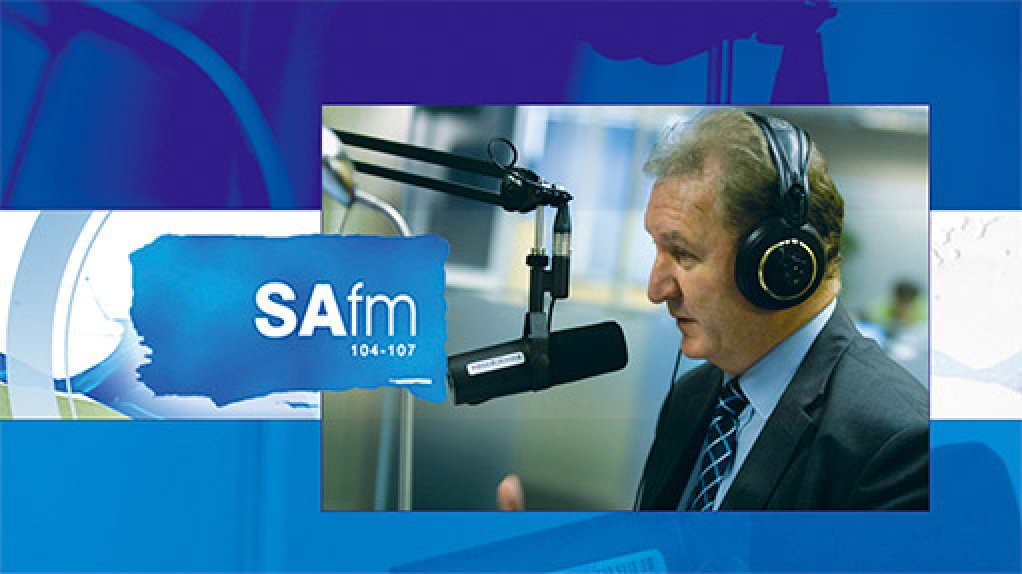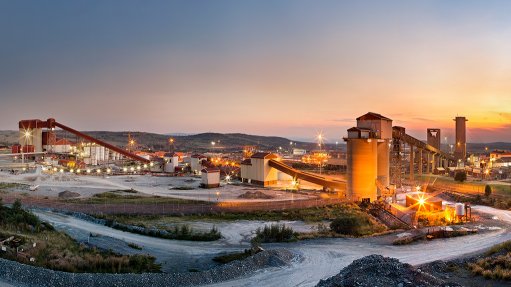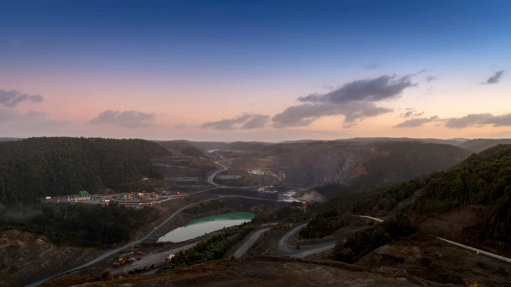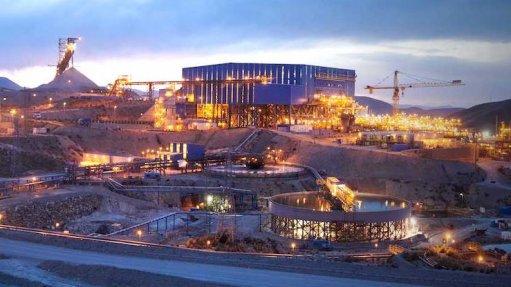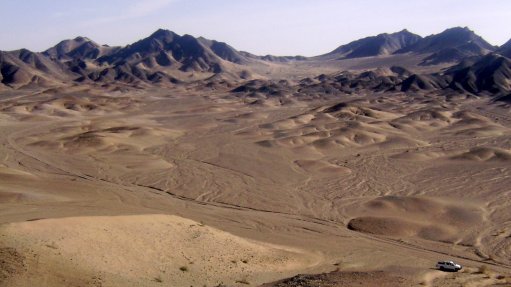22/11/2013 (On-The-Air)
Every Friday morning, SAfm’s AMLive’s radio anchor Ashraf Garda speaks to Martin Creamer, publishing editor of Engineering News and Mining Weekly. Reported here is this Friday’s At the Coalface transcript:
Garda: The Chinese have trained up 1 000 South Africans to run South Africa’s first new cement entrant since 1934.
Creamer: The Chinese have helped to train up 1 000 South Africans who are building a new cement plant. This was a turn up for the books because two years ago this company Sephaku, which is the first entrant to cement since 1934, they put out bids to find out who would build this cement plant for them and by far the best bid come in from the Chinese.
It was 25% below all the South African bids, but there are also addendums to that. The Chinese said that they would do this as a turnkey so that the plant would be ready to go once they built it, no other bids were prepared to do that. On top of that they said that they will train South Africans. So the last two years they have trained up 1 000 South Africans.
What has happened is that the Chinese have had work for two years. Now these hundreds of Chinese are going back to China so they don’t take up any of our jobs here, but they have created 30 years of work for people that they have trained up at Sephaku.
It is an interesting model. We saw the Chinese here and wandered whether they were taking South African jobs, but in actual fact they have created 30 years of work. Sephaku is also building a limestone mine, which is fantastic.
We have got a new limestone mine, and if we are talking about beneficiation, which the government always does, there is no better example of beneficiating limestone into cement than with a cement plant that is an integrated plant. We see that the first bag of cement will come out of that in January.
Garda: South Africa’s under-performing State Diamond Trader is facing a radical overhaul.
Creamer: The State Diamond Trader. We see the Minister has given the undertaking at the Kimberley Process breakfast that there is going to be a radical overhaul of the State Diamond Trader.
It is only six years old, but it gives an example of when the State intervenes, and this is what they did six years ago, they said that they are going to take 10% of all diamonds mined here and give them to South Africans who can beneficiate them, cut and polish them and add some value. But, look how difficult it is to do that.
As we see when I was at the launch six years ago they said this is a dream come true. Well its really more of a nightmare, it hasn’t really worked and it shows you how intricately these actual industries are. You can’t just buy a whole lot of diamonds and dish them out, because one man’s meat is another man’s poison.
The particular diamonds they want you might not be able to get at a competitive price, as we saw happening. So, the Minister now having studied this has said to the Kimberley Process breakfast at question time that they are going to overhaul this, but we are going to be radical about it.
We are going to do something very different here because we can see that a stand-alone entity like that just doesn’t work with the State intervention. They are going to look at a whole series of precious metals and minerals and try and think up a State-enabled bourse rather then direct intervention in a very narrow situation.
Garda: Just staying on the issue of the Kimberley Process, we are going to have that as the basis of our discussion from 08h00 to 09h00 with specific reference to conflict diamonds. Any thoughts you have on that?
Creamer: You can see that they have cleaned up the diamond act in terms of their definition. Some people are saying that you must make your definition a bit broader, but in terms of blood diamonds and conflict diamonds in Sierra Leone, Angola and Liberia, they have made sure that those diamonds that are used for nefarious activities do not come into the market.
Garda: A step change is needed in the safety performance of the South African mining industry.
Creamer: It seems like a step change is really needed to get to that zero harm mine-safety target. In 2003, ten years ago, CEOs of the mining companies got together and said they were going to cut their fatalities to zero by 2013.
We are now at 2013 and they’ve done extremely well, but already the number this year is 87 miners have died, against 89 last year and we have only got a month to go. Last year 112 died. What they say now is yes, we’ve done extremely well. In terms of performance percentages we are 66% better, we have beaten the Australians in terms of percentages.
We have beaten the Canadians and we are really trending to be the best in the world, but we still have this massive figure. When we are talking about 87, that is a lot of people.
They are saying that if we carry on the same rate we will only get to the level of below five fatalities by 2040. That is just too long to wait. We cannot wait to 2040.
Garda: On that issue, due you know much of what South Africa is doing to get it down in terms of the implementation.
Creamer: The implementation has been spectacular. In situations where they put nets and bolts up, which cut the rockfall on to peoples’ heads by 80%.
Fatalities from rockfall have declined by 80% and that is like 50 bags of cement coming down on your head. They have stopped that tremendously with the nets and bolts and they are going to continue with that.
They have also got proximity protection devices and we saw in a coal mine this miner who through a medical problem collapsed and he was going to be run over by a 20 ton coal truck.
But because he has got a transponder in his helmet that helmet then communicated and stopped that truck in its tracks a metre before it would have flattened him. We see that sort of thing happening, the technology is coming through, but the big companies are now looking at mining in a completely different way so that we can have a step change.
We don’t want to wait to 2040 to get to a level of five fatalities a year. We have to do it sooner.
Garda: Thanks very much. Martin Creamer is publishing editor of Engineering News and Mining Weekly, he’ll be back with us at the same time next week.
Comments
Press Office
Announcements
What's On
Subscribe to improve your user experience...
Option 1 (equivalent of R125 a month):
Receive a weekly copy of Creamer Media's Engineering News & Mining Weekly magazine
(print copy for those in South Africa and e-magazine for those outside of South Africa)
Receive daily email newsletters
Access to full search results
Access archive of magazine back copies
Access to Projects in Progress
Access to ONE Research Report of your choice in PDF format
Option 2 (equivalent of R375 a month):
All benefits from Option 1
PLUS
Access to Creamer Media's Research Channel Africa for ALL Research Reports, in PDF format, on various industrial and mining sectors
including Electricity; Water; Energy Transition; Hydrogen; Roads, Rail and Ports; Coal; Gold; Platinum; Battery Metals; etc.
Already a subscriber?
Forgotten your password?
Receive weekly copy of Creamer Media's Engineering News & Mining Weekly magazine (print copy for those in South Africa and e-magazine for those outside of South Africa)
➕
Recieve daily email newsletters
➕
Access to full search results
➕
Access archive of magazine back copies
➕
Access to Projects in Progress
➕
Access to ONE Research Report of your choice in PDF format
RESEARCH CHANNEL AFRICA
R4500 (equivalent of R375 a month)
SUBSCRIBEAll benefits from Option 1
➕
Access to Creamer Media's Research Channel Africa for ALL Research Reports on various industrial and mining sectors, in PDF format, including on:
Electricity
➕
Water
➕
Energy Transition
➕
Hydrogen
➕
Roads, Rail and Ports
➕
Coal
➕
Gold
➕
Platinum
➕
Battery Metals
➕
etc.
Receive all benefits from Option 1 or Option 2 delivered to numerous people at your company
➕
Multiple User names and Passwords for simultaneous log-ins
➕
Intranet integration access to all in your organisation



